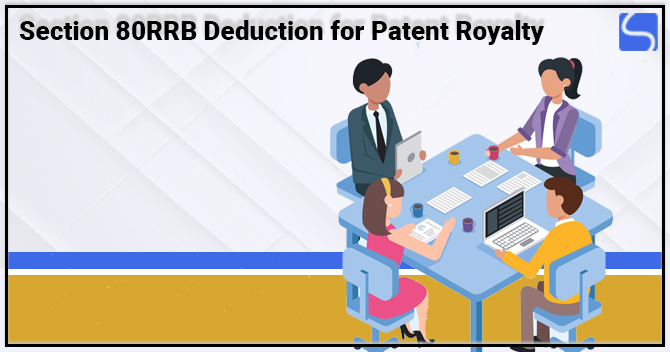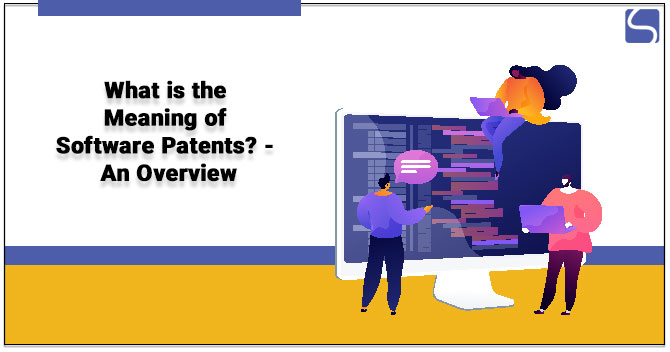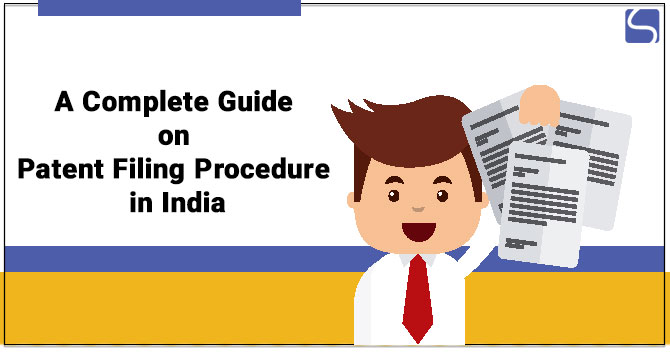A Comprehensive Analysis on Section 80RRB Deduction for Patent Royalty

Karan Singh | Updated: Apr 03, 2021 | Category: Patent
Section 80RRB was announced to make sure that someone who has done extraordinary work gets their reward. This facility is provided in the Income Tax Act for taxpayers attaining an income through patent royalty. The royalty received by a person on the Patent is suitable for tax deduction under Section 80RRB of the Income Tax Act. Hence, Section 80RRB deduction for Patent Royalty is directed to inspiring innovation and patenting in India. Scroll down to check more information regarding Section 80RRB deduction for Patent Royalty.
Table of Contents
What is a Patent?
Indians are considered the innovative and creative minds in the globe. Therefore, it’s not exceptional to come across innovation or creations regularly. Such innovators don’t just make life relaxed for citizens of India but also for the globe as a whole. The innovators apply for Patent Registration with the relevant authorities, which advises them to use the innovation for a particular time. A Patent is also recognized as an Intellectual Property Right (IPR) and makes sure that the innovator’s rights are safeguarded. This permits the innovators to monetize their innovation and make regular incomes from the same.
When an innovator gives another individual or company the rights to use the Patent registered innovation, in return, they receive a regular payment, and such payment is called Royal Payment. Generally, what happens is that the innovators don’t have the means to advance their idea into an operative offering. In such a case, a company or an individual takes the rights to use that innovation and then improves it into an effective product. In such a condition, that company will pay the innovator a royalty amount against using the invention commercially. It may be a fixed amount every year or a certain percentage of sales for a specified time.
What is Section 80RRB?
As India’s official citizen, you have an exclusive right to pursue any lawful occupation to generate income. There are different paths from which you can make money, comprising employment or business. Such income source for many citizens of India is Royalty Payments. Royalty is an amount paid to an individual by a different party against the usage of assured work created by the recipient. This could contain art, inventions, music, painting, drawings, etc. Royalty payments are generally frequent and can range from a particular period until the death of the recipient. If you also come under this category and receive royalty payments against your work, you can claim Section 80RRB deduction for Patent Royalty under the Income Tax Act, 1961.
What is the Eligibility Criteria for Section 80RRB Deduction for Patent Royalty?
Section 80RRB deduction for Patent royalty can be claimed only by fulfilling all the following criteria:
- The taxpayer must be an individual. Corporates and Non-Profit Organizations are not entitled to claim any deduction under Section 80RRB.
- An individual claiming a deduction must be an Indian resident.
- The Patent under this section in question must be registered under the Patent Act of 1970, either on or after April 01, 2003.
- The individual should be an Indian citizen to claim a deduction under this section.
- Only the owner of a Patent can claim the deduction under this section. Individuals who don’t hold the actual Patent are not eligible for tax benefits.
- The Patent’s co-owner is eligible to claim a deduction, but the deduction concerning a specific Patent can be claimed only once.
- The taxpayer’s name who is claiming the deduction must be entered in the register of Patent as the Patentee.
- Capital gains tax cannot be used to claim the deduction by a transaction that attracts the same.
- The deduction will be settled under this section only if the assessee furnishes in the electronic mode Form No. 10CCE.
- The assessee might make a product sale that was manufactured by using the patented processes. Otherwise, the assessee may sell the product which was patented. Such examples cannot be used to claim deduction under Section 80RRB.
- To claim a deduction under Section 80RRB, the assessee must mention the deduction amount in the income return.
Deductions under Section 80RRB for Royalties against a Patent
As stated previous, the income received from Royalties is suitable for Section 80RRB deduction for Patent Royalty. Following are vital factors that should be noted regarding this deduction:
- A person can claim deduction under this section of up to Rs. 3 lakhs against royalty payments. It’s the maximum amount that can be claimed as a deduction under this section. If the authentic royalties received are less than INR 3 lakhs, then only this amount would be suitable for deduction under this section;
- If an individual has an alternate source of income, then the amount received as royalty can be claimed;
- Only the actual Patent owners can claim the deduction under this section;
- If the payments or royalty are received from an overseas nation, then the deduction can be claimed regarding the royalty payments received within six months of the end of the financial year in which the earnings are received;
- The deduction under Section 80RRB is only available for individuals, Non-residents or HUF (Hindu Undivided Family) who cannot claim this deduction;
- It is essential to generate documentary proof of the royalty payments; otherwise, the claim may be rejected;
- The royalty amount is settled between two different parties as per the Mutual agreement. But in some conditions, the Government may grant an obligatory license to utilize the Patent in the public interest. Then in such a condition, the Patents Controller[1] of the Government will resolve the payable royalty amount. In this situation, the claimed deduction cannot be more than the amount of settlement. If you are also an inventor and hold a Patent from the Government for your original innovation, then you can claim for Section 80RRB deduction for Patent Royalty and save on your taxation liabilities.
Conclusion
Section 80RRB keeps tax liabilities for royalty income from Patents. If you are a creator or an inventor and invent a new thing, first obtain Patent Registration to avail Section 80RRB deduction for Patent royalty. Get the rights and receive royalty for your innovations. Against this royalty income, you can claim the deduction and cut your load of taxation. The deduction that can be claimed is royalty received or INR 3 lakhs, whichever is lesser.
Read our article:All You Need to Know About Provisional Patent Application in India














